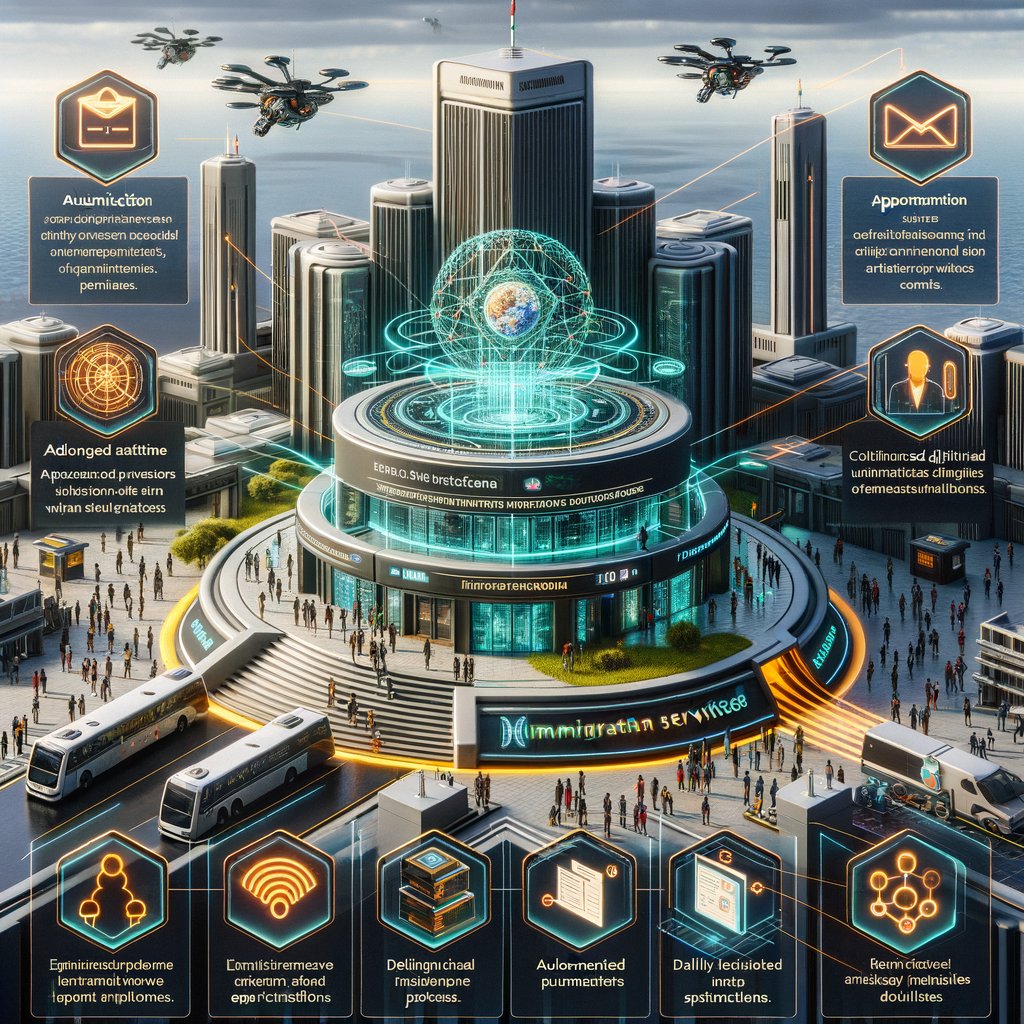Image created by AI
South Africa's Home Affairs Embarks on a Digital Transformation Journey with a New Five-Year Strategic Vision
South Africa's Minister of Home Affairs, Dr. Leon Schreiber, has unveiled a revolutionary five-year plan designed to overhaul the department by transitioning to a digital-first operation within the 2024-2029 term. The announcement comes at a time when the Government of National Unity marks its first 100 days in power.
Under the banner of Home Affairs @ home, the ambitious strategy aims to eliminate the need for in-person visits to Home Affairs offices for accessing routine services. Instead, Schreiber envisions a future where all services, including the application for IDs, passports, and certificates, are available online and linked to unique biometrics, mirroring the systems successfully used by banks and the South African Revenue Service (SARS).
The plan introduces an automated risk engine to process applications, requiring human intervention only when anomalies are flagged. This engine will be key to realizing another vision of the strategy: the delivery of documents directly to clients' homes or digitally to their phones.
Immigration services will also see a modern makeover, encouraging travelers to use an online platform for applying for Electronic Travel Authorisation (ETA). This digital system will replace paper-based visas with a unique digital code linked to the traveler's passport, enhancing the efficiency of visitor management upon arrival at South African borders.
In terms of national security, the strategy includes employing biometric and machine learning technologies to prevent identity fraud and detect fraudulent documents. The same technology will aid in the real-time notification of immigration officials whenever a traveler overstays their authorization.
The digital transformation is not just a leap into modernity but also a response to a practical need. Minister Schreiber highlights that after years of budget cuts, the department operates with only 40% of the staffing necessary to provide adequate services. The current model of physical visits is neither financially sustainable nor future-proof. The new strategy aims to relieve this pressure, allowing citizens and international visitors to access services remotely.
Furthermore, digital transformation aligns with the apex priority of the Government of National Unity, which focuses on economic growth to create jobs. By dispensing with outdated and inefficient red tape, Home Affairs aims to attract more tourists along with foreign investment and skills crucial for the South African economy.
As Minister Schreiber concludes, the end goal of the digitization plan is to offer an improved service experience to users, providing dignity to all 62 million South Africans and foreign visitors. The Home Affairs @ home initiative places their needs and interests at the forefront, committing to deliver impactful benefits during the 2024-2029 term.










